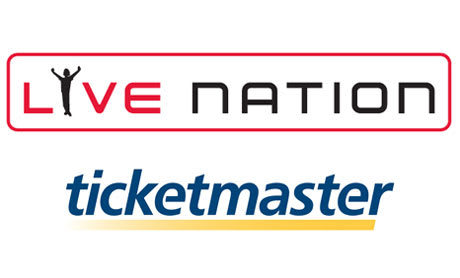Live Nation and Ticketmaster await the U.S. Justice Department's approval of their proposed merger after shareholders from both companies overwhelming approved the deal.
Late last week, over 99-percent of Live Nation shareholders and more than 98-percent of Ticketmaster's share owners approved a deal to merge the world's largest concert promoter with the world's largest ticket-selling company, the CBC reports, but the deal will not go through until U.S. antitrust authorities ensure there will be no monopoly.
The proposed merger, which was announced last February, would see Live Nation buying out Ticketmaster Entertainment for nearly $400 million U.S. in stock value. Many critics have been wary of a potential monopoly in ticket sales and concert promotion. Last month, a similar merger between the two companies in the UK was approved by the UK government, who reversed a previous decision to disallow the Live Nation and Ticketmaster merger.
In North America, the deal has been opposed by many U.S. lawmakers, including Representative William Pascrell, a New Jersey Democrat (see YouTube clip below). Also, rival concert promoters and ticket sellers claim a combination of the two companies would give them too much control in the concert business.
Right now, the deal rests on whether the companies will offer more concessions to the government in exchange for approval of their merger, according to Business Week [via The Daily Swarm]. Unnamed sources told the business publication that the U.S. Justice Department is being very careful in their consideration over whether the merger will create a monopoly.
"There are always compromises in these types of deals, and if Live Nation and Ticketmaster are willing to go along with what the government requires, there will be a deal," David Kestenbaum, an analyst with New York's Morgan Joseph & Co., told Business Week.
Those within the two companies say the merger will help to create a new business model in a music industry that no longer banks on album sales, and where concert sales have more than doubled in the past decade. According to Billboard, concert sales are up from $1.7 billion in 2000 to $4.4 billion in 2009.
The two companies currently have a combined market value of approximately $1.65 billion.
Late last week, over 99-percent of Live Nation shareholders and more than 98-percent of Ticketmaster's share owners approved a deal to merge the world's largest concert promoter with the world's largest ticket-selling company, the CBC reports, but the deal will not go through until U.S. antitrust authorities ensure there will be no monopoly.
The proposed merger, which was announced last February, would see Live Nation buying out Ticketmaster Entertainment for nearly $400 million U.S. in stock value. Many critics have been wary of a potential monopoly in ticket sales and concert promotion. Last month, a similar merger between the two companies in the UK was approved by the UK government, who reversed a previous decision to disallow the Live Nation and Ticketmaster merger.
In North America, the deal has been opposed by many U.S. lawmakers, including Representative William Pascrell, a New Jersey Democrat (see YouTube clip below). Also, rival concert promoters and ticket sellers claim a combination of the two companies would give them too much control in the concert business.
Right now, the deal rests on whether the companies will offer more concessions to the government in exchange for approval of their merger, according to Business Week [via The Daily Swarm]. Unnamed sources told the business publication that the U.S. Justice Department is being very careful in their consideration over whether the merger will create a monopoly.
"There are always compromises in these types of deals, and if Live Nation and Ticketmaster are willing to go along with what the government requires, there will be a deal," David Kestenbaum, an analyst with New York's Morgan Joseph & Co., told Business Week.
Those within the two companies say the merger will help to create a new business model in a music industry that no longer banks on album sales, and where concert sales have more than doubled in the past decade. According to Billboard, concert sales are up from $1.7 billion in 2000 to $4.4 billion in 2009.
The two companies currently have a combined market value of approximately $1.65 billion.




